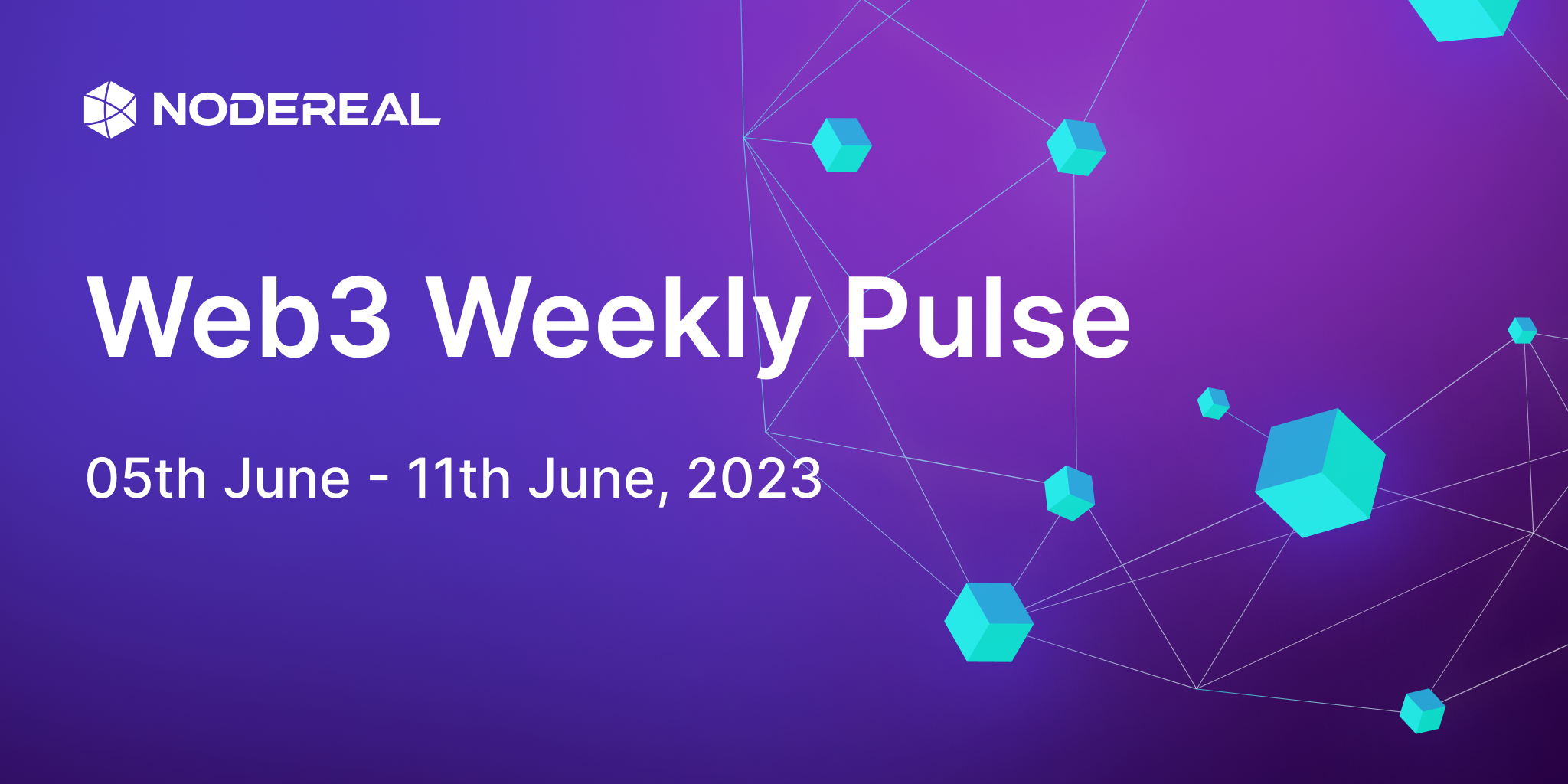Hey there!
Welcome back to another edition of Web3 Weekly Pulse! We're super excited to have you here as we delve into the exciting world of Web3.
Sit back, relax, and get ready to be immersed in the most fascinating news on industrial signals, infrastructure highlights, and ecosystem happenings.
Grab your favorite drink, whether it's a warm cup of coffee or a refreshing iced tea, and let's dive right into this week's edition of Web3 Weekly Pulse.

1️⃣ In a recent blog post titled "The Three Transitions," Ethereum co-founder Vitalik Buterin outlined a new roadmap for the network's future direction. Buterin emphasized the importance of addressing key goals such as layer 2 scaling, wallet security, and privacy in a coordinated manner. According to Buterin, these technical transitions should be tackled simultaneously to preserve the protocol's essential elements while ensuring a global and permissionless experience for everyday users.

2️⃣ Gensyn, a London-based marketplace protocol leveraging blockchain technology to facilitate transactions between computing power buyers and sellers, has recently secured a significant milestone with a $43 million Series A funding round. The funding round was led by A16z Crypto, a prominent venture capital firm specializing in crypto investments, with participation from CoinFund, Canonical Crypto, Protocol Labs, Eden Block, Maven 11, and several angel investors. While the precise valuation remains undisclosed, this substantial investment underscores the market's confidence in Gensyn's potential and signifies the growing interest in blockchain-based marketplaces.

3️⃣ The European Commission has recently taken a significant step towards establishing a system for verifying educational and professional credentials across borders. On June 7, Protokol, a leading provider of Web3 and blockchain solutions, announced its collaboration with EBSI Vector, a project funded by the European Union. The primary objective of this collaboration is to develop a decentralized framework that enables seamless cross-border verification of credentials. By leveraging blockchain technology, the project aims to enhance the transparency, security, and efficiency of credential verification processes within the European Union.


1️⃣ The Ethereum Name Service (ENS) has announced its plans to introduce support for a new web domain called .box. This domain extension, known as a Top-Level Domain (TLD), is derived from the My.Box project. One noteworthy aspect of My.Box is the ability to enable the use of domains for both cryptocurrency-related activities and traditional internet services, including email. This development showcases the continuous evolution of ENS in expanding its functionality and facilitating a more seamless integration of blockchain technology with conventional web browsing experiences.

2️⃣ Starknet, a Layer 2 (L2) network, has revealed its plans for the forthcoming release of version v0.12.0, focusing on scalability and transaction speed. The update includes a new Rust implementation for the sequencer, leveraging Cairo-rs and blockifier, as well as utilizing Papyrus storage for improved performance. Notable changes involve the removal of transaction pending status and the introduction of new block hash system calls. These enhancements reflect Starknet's dedication to optimizing network throughput and enhancing user experience.

3️⃣ Aave has proposed launching the native stablecoin GHO on the Ethereum mainnet through the use of Aave V3 Ethereum Facilitator and FlashMinter Facilitator. This would allow users to mint GHO using collateral and generate additional revenue through GHO lending interest for the DAO treasury. Aave also intends to propose a multi-chain strategy to the community after the GHO launch, showcasing its commitment to expanding its ecosystem.


Ethereum
Ethereum Developers reach a consensus on the full scope of Dencun Upgrade - link
Polygon
Polygon zkEVM Mainnet Beta has undergone another recent update - link
BNB Chain
The anticipated fast finality finally arrived on BNB Chain - link
Arbitrum
USDC is now natively available on Arbitrum. - link
Avalanche
It introduced Avalanche Arcad3, a program to accelerate web2 gaming companies’s onboarding to blockchain gaming. - link
Sui
Developers will be able to build liquid staking with the SIP 6 protocol update. - link
About NodeReal
NodeReal is a one-stop blockchain infrastructure and service provider that embraces the high-speed blockchain era and empowers developers by “Make your Web3 Real”. We provide scalable, reliable, and efficient blockchain solutions for everyone, aiming to support the adoption, growth, and long-term success of the Web3 ecosystem.
Join Our Community
Join our community to learn more about NodeReal and stay up to date!






